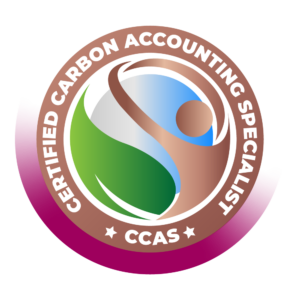Certified Carbon Auditor – CCA Overview
Principally attributable to the escalation in greenhouse gas (GHG) emissions is the critical global concern of climate change. Significantly, since 2012, there has been a rise in these emissions, which consist of 9% methane, 6% N2O, 3% other fluorinated gases, and 82% CO2. Countries with high greenhouse gas emissions have implemented energy efficiency measures in an effort to combat this.
However, ongoing endeavors to mitigate greenhouse gas (GHG) emissions via legal and technical means are required to offset the adverse impacts of austerity and climate change. Additionally, governments should harmonize regulations, standards, and instruments in order to safeguard the environment from private interference and public nuisances. The construction sector has been a major contributor to the increase in greenhouse gas emissions.
The primary aim of the Certified Carbon Auditor—CCA Overview training program is to provide participants with the essential knowledge, principles, guidance, and resources required to proficiently carry out and oversee carbon audits.
The emission of carbon dioxide (CO2) and other greenhouse gases from transportation, power generation, and other industrial and commercial activities exacerbates global environmental impacts.
Immediate implementation of carbon-reduction strategies by corporations is required to combat environmental issues. Conducting a carbon audit is critical to identifying the sources of carbon emissions and quantifying their environmental impact. Energy consumption has a significant influence on carbon emissions, making it advantageous to reduce carbon footprints by implementing energy-conservation practices.
This program is well-suited for energy professionals who are interested in supporting their organization in harnessing the supplementary advantages of greenhouse gas (GHG) reduction. These advantages include risk mitigation, improved branding, increased competitiveness, enhanced productivity and operations, increased shareholder value, and reduced costs.
Krishnaji Pawar, an accomplished sustainability specialist with expertise in smart city development, sustainable design strategy development, environmental impact assessment, green building certification (LEED, GSAS, etc.), energy usage modeling, greenhouse gas accounting, and emissions management, developed the Certified Carbon Auditor (CCA) Overview training.
Learning Objectives
- Introduction and Course Outline
- Birth of Carbon Accounting
- Greenhouse gas accounting and reporting
- Kyoto Protocol and beyond
- Professional Certification for Carbon Auditors
- Business Applications of Corporate GHG Inventories
- Carbon and energy management overview
- Summary and Resources
- Certified Carbon Auditor Exam Sample Questions
The Role of a Certified Carbon Auditor
- Assist organizations and businesses in decreasing their carbon footprint.
- Understand the basic principles of the Kyoto Protocol, the Paris Climate Agreement, and additional guidelines.
- Understand contemporary developments and legal obligations.
- Apply carbon audits and inventories of emissions.
- Identify opportunities for reduction.
- Establish an emissions management program for greenhouse gases.
- Ensure that carbon emissions are reported in accordance with global benchmark
- Organize marketing and financing to maximize the success of an undertaking.
Other Related courses
Certified Carbon Auditor – CCA Exam Question Bank
 The Certified Carbon Auditor (CCA) Exam Question Bank consists of multiple-choice questions. The students will be able to assess their knowledge and ability to finish the exam with the required score by practicing 500+ questions in five simulation exams to be completed in 2.5 hours each. The simulation exams work with the latest version of the Certified Carbon Auditor (CCA) knowledge domain.
The Certified Carbon Auditor (CCA) Exam Question Bank consists of multiple-choice questions. The students will be able to assess their knowledge and ability to finish the exam with the required score by practicing 500+ questions in five simulation exams to be completed in 2.5 hours each. The simulation exams work with the latest version of the Certified Carbon Auditor (CCA) knowledge domain.
Learning Objectives
- Over 500 questions in 5 practice exams range from easy to hard to specialist.
- Understand each question and answer’s reasoning and related knowledge area to restudy or revise.
- Learn the GHG emissions management program, report carbon emissions according to international standards, and verify emissions. acronyms.
- Understand each question and answer’s reasoning and related knowledge area to restudy or revise.
- Recognize strategies and make smart choices.
- Experience the CCA exam.
- Consider the practice test part of your education.
- New CCA: 121+ Key Terminology Flash Cards!
- CCA_Engineering and HVAC Design Equations
Global Carbon Markets – Emissions Trading
This course provides instruction on the economic theory and practical implementation of cap-and-trade mechanisms designed to regulate greenhouse gas emissions through the use of market forces. Its objective is to comprehend the economic theory and implementation of these systems, as well as their climate change mitigation function.
Fundamentals of Organizational GHG Accounting
The Fundamentals of Organizational GHG Accounting program provides professionals with the knowledge and abilities necessary to assist businesses in their preparations for climate action. This includes the development of climate action plans (low emission development planning), climate adaptation plans, and greenhouse gas (GHG) emission inventories.


